Rick Penta | Interview
I first stumbled upon Rick Penta’s 1977 LP ‘Hit The Road’ on a French music blog and spent quite a few years trying to track down the album to no avail, as it’s fairly expensive as far as these things go. I was eventually able to trade online for a digital rip to get to hear the entire album, so I decided to see if I could get in touch with Rick himself to find out any information. The Fairlawn, Ohio based Penta’s album is a fine mix of Beatlesque SSW-influenced folkrock with ringing 12-string guitar and is mostly acoustic based, with interesting song titles such as ‘Suzi Mescaline.’ Although most of the album is acoustically driven, there is one hard rock track side on Side 2 with stinging leads. The album was a two man show, with Penta handling guitar, bass, and lead vocal duties and his pal Greg Tomanek on drums. By looking at the cover, one would think this is a country rock or rural rock LP, but that’s not accurate.
When and where were you born?
I was born in 1959 in Barberton Ohio, but my family and I lived in Akron, Ohio.
What were your earliest musical influences? When did you pick up the guitar, and was it your first instrument?
My earliest influences consisted of my brother’s band. About the same time, The Beatles appeared on Ed Sullivan. After seeing them perform, I immediately knew: “This is how you get all the girls!!!” My parents bought me a drum set for Christmas that year [The Beatles appeared on Ed Sullivan in 1964] so I thought I was cool. That was, until my younger cousin came over and kicked my ass on the drums. That was the first time I was ever one-upped. I then took an interest in the guitar and since my brother played and had one he started to teach me how to play.
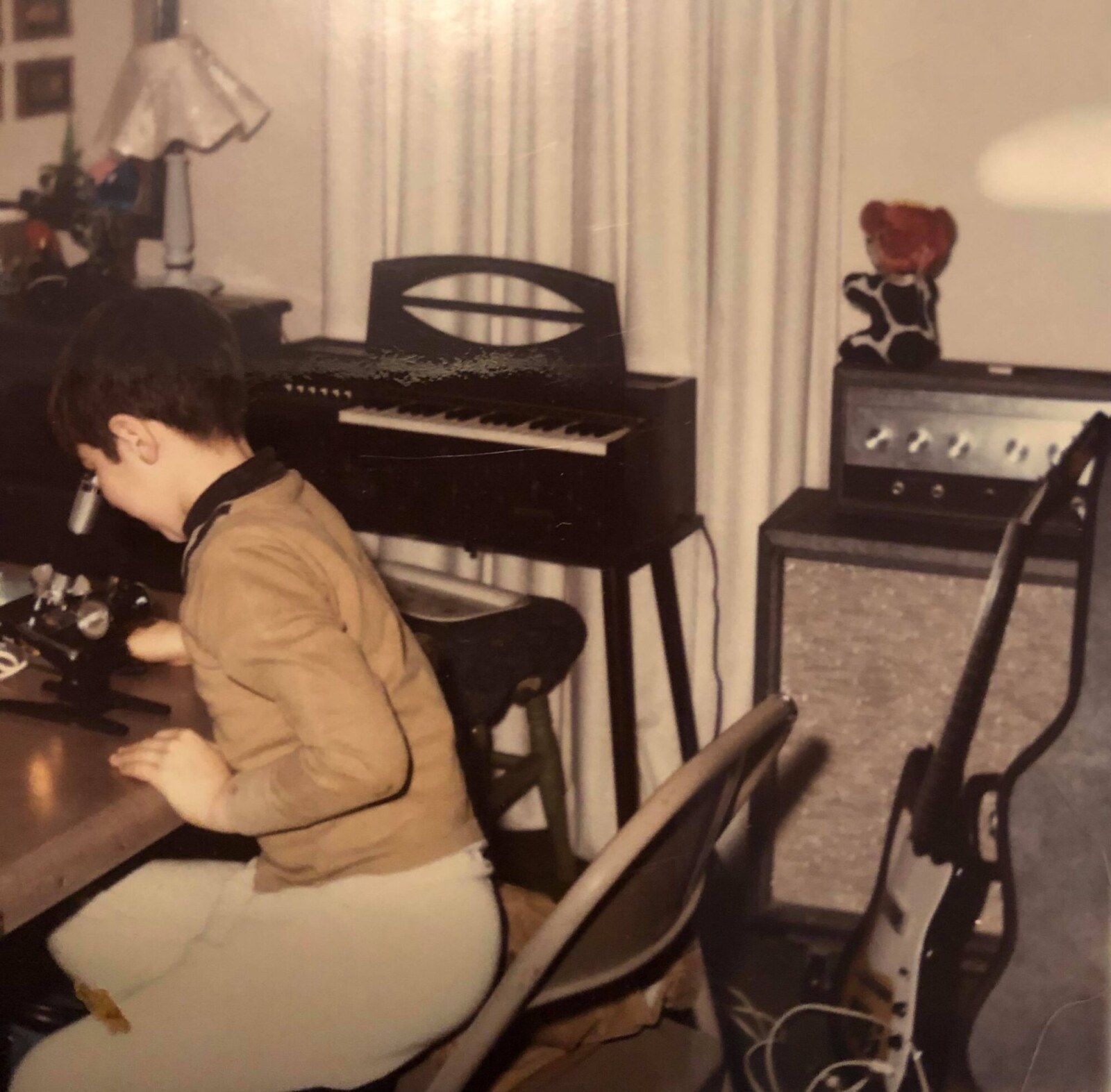
When I was 6 1/2 years, old my mom bought me my first guitar and started me in lessons. The guitar was a Harmony H 14 Bobkat. I just re-created a high-end build oh the next model up, the H15. This model has custom inlays, better electronics, a set neck and a longer scale size. By the time I was in second grade, I wrote my first song called ‘Dear Girl’ or a classmate who I had a crush on. I especially liked George Harrison‘s songs and many of my songs were written in a similar style.
“There was nothing more in life I wanted to do and to be a rockstar.”
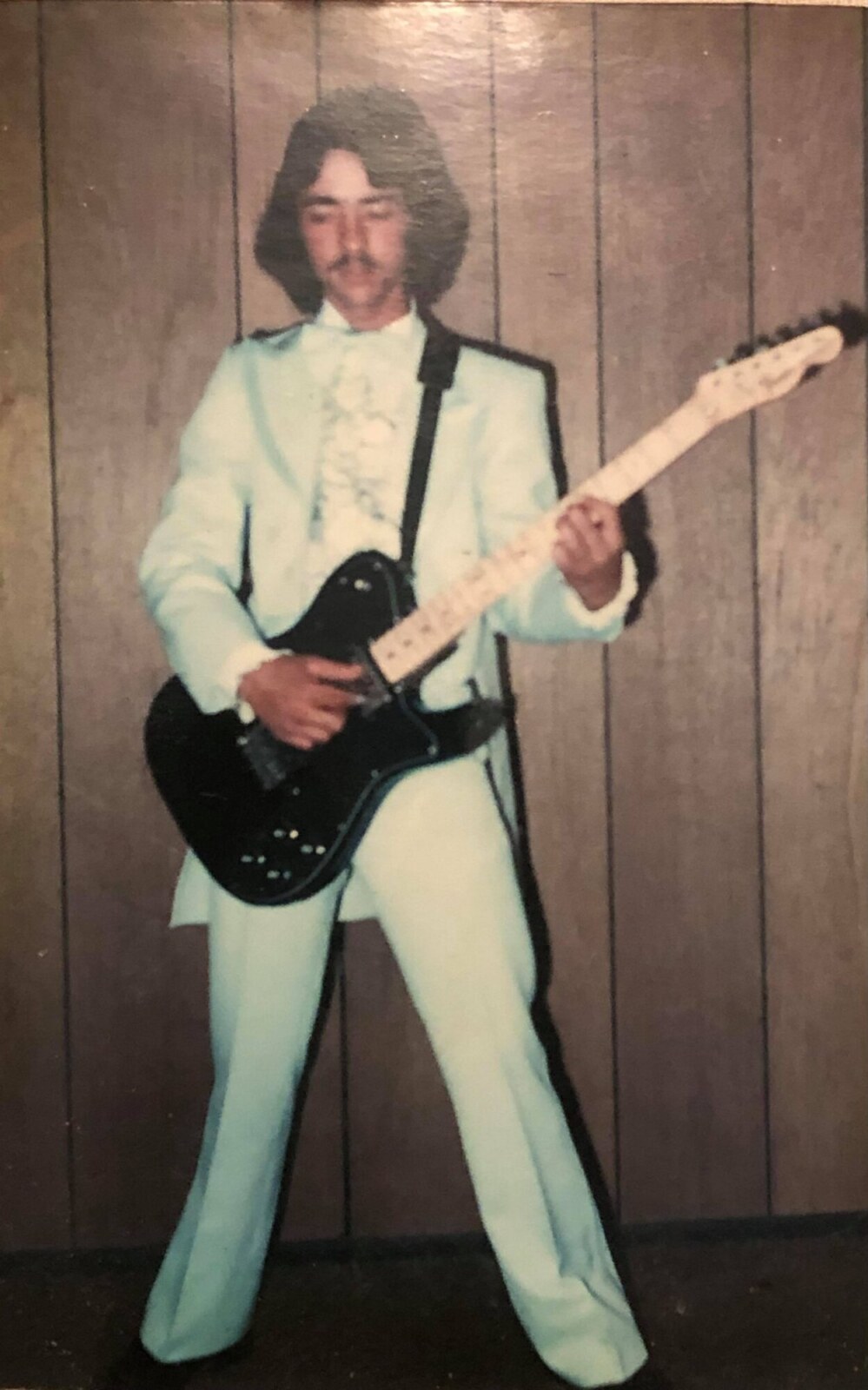
Tell me about the first band you formed.
My first band was about the time I was in fourth grade. It was just a drummer, myself, the drummer’s sister and the girl who lives next-door. Needless to say we played Beatles songs and a few
Peter, Paul and Mary songs. By the time I was in sixth grade I started learning of Black Sabbath, Jimi Hendrix, and Led Zeppelin.
I learned several of their songs but preferred the music of Eric Clapton, Badfinger, and the music of each of the individual Beatles. By eighth grade I was into David Bowie and Ian Hunter as well as ELO. There was always a band to start up at school with various classmates. Between second grade and seventh grade it seemed that every song I wrote I would hear sooner or later something similar on the radio.
Nevertheless, I continued to work on my craft. By ninth grade and throughout the rest of high school I concentrated mainly on writing songs as opposed to playing cover music. There was nothing more in life I wanted to do and to be a rockstar. I purchased a four track real to reel recorder and started recording my music, but I had so little experience doing any kind of engineering that it really sucked bad.
By then I was working with another classmate who became my best friend and somewhat of a co-writer or co producer Greg Tomanek. We were the Kirk and Spock of our music career. I always wrote with my heart and Greg was the logical critique of our duo. Greg passed on a few years ago losing his battle to throat cancer. He was like a brother to me. I hope someday that we can set upon a star with our legs hanging over drinking a beer while solving the problems of the world.
What circumstances led up to you deciding to record your first LP ‘Hit The Road’?
Greg and I did the first album together and several demos after that. He needed to play out and I needed to work in the studio. So we kind of went our separate ways but maintained our friendship always. ‘Hit The Road’, the album came about out of I need to just try to break into the business. We had no money and that showed in lack of being able to perfect anything on that album. Recording time was expensive and we were poor.
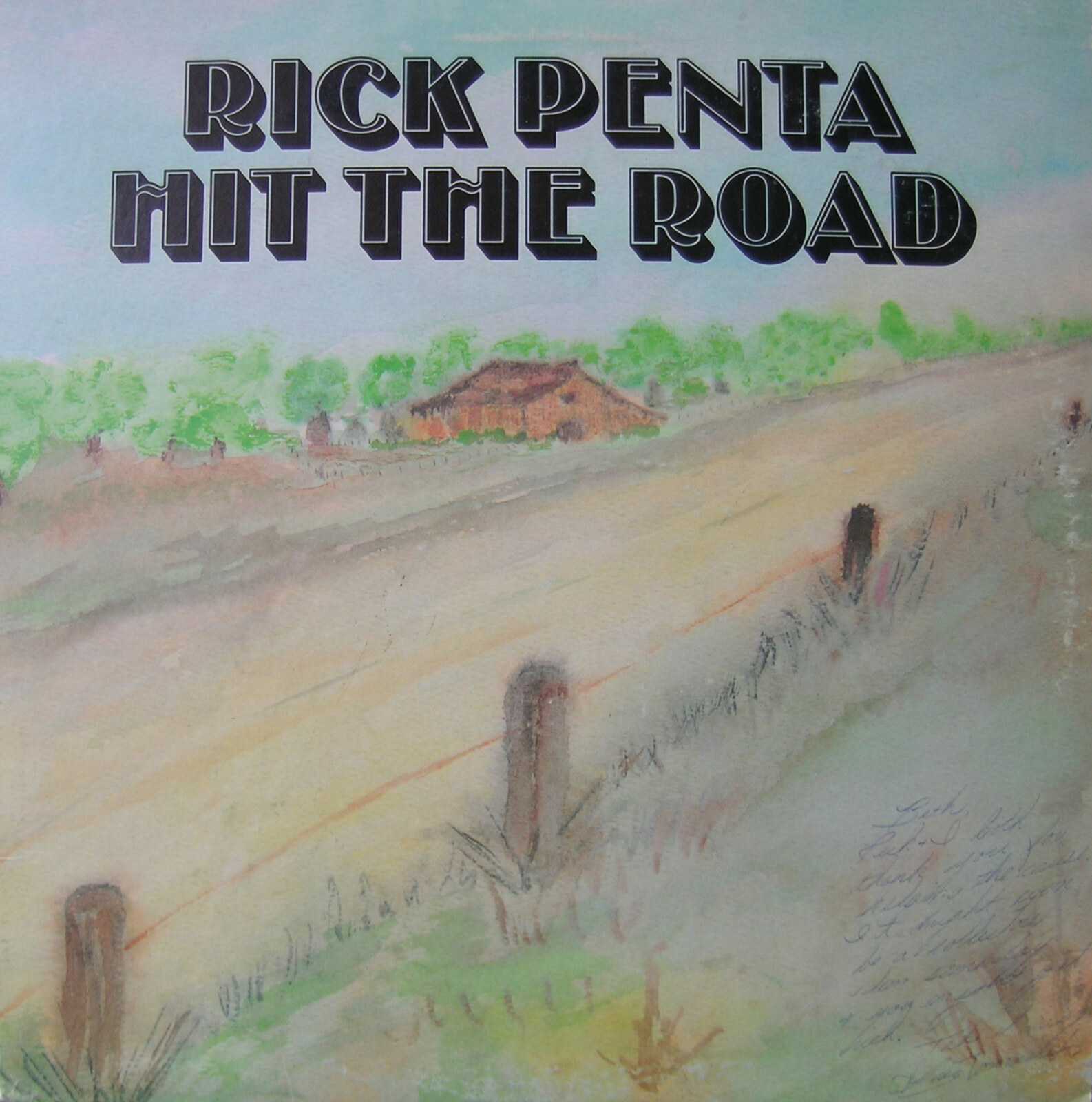
We did the best we could for what we had to work with.
How many copies were made of the ‘Hit The Road’ LP? What about the recording process and equipment you used on the album?
It was a miracle that this album even was created and exists. I struggled financially at the time, but my friend and mentor Leonard Huntsberry never gave up on me, believed in me and was a second dad to me suggested that I ask for donations to make this record, so I swallowed my pride and did exactly that. I managed to put enough together to record these songs, barely. I kept asking for donations and got enough to order some copies. There were 2000 copies printed and we sold close to 1800 of them within four months of the release. As I sold the copies, I start repaying my investors, most just wanted a copy of the album and the rest took the money. The album was recorded at Brittain Square Sound on a 8 channel Tascam real to real. There was a lot of track bouncing.
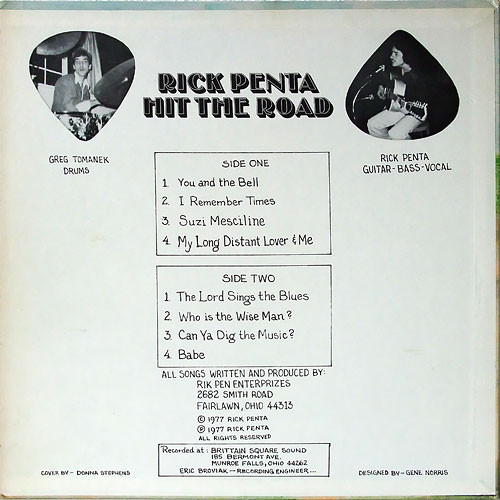
Could you give me a track-by-track analysis of the songs and a bit of the insight into the creative process?
The songs for the ‘On The Road’ album are a compilation of mostly love songs that I had written for different women that I dated in the span of five or six years and how life affected me in those years. My favorite song on the album is ‘Suzi Mescaline’. Suzi was a friend of mine who committed suicide because she couldn’t keep living in the hell that was dealt to her. She had a sweet tooth for the drug mescaline. She was a fascinating person to everyone who knew her, but she hated her own life.
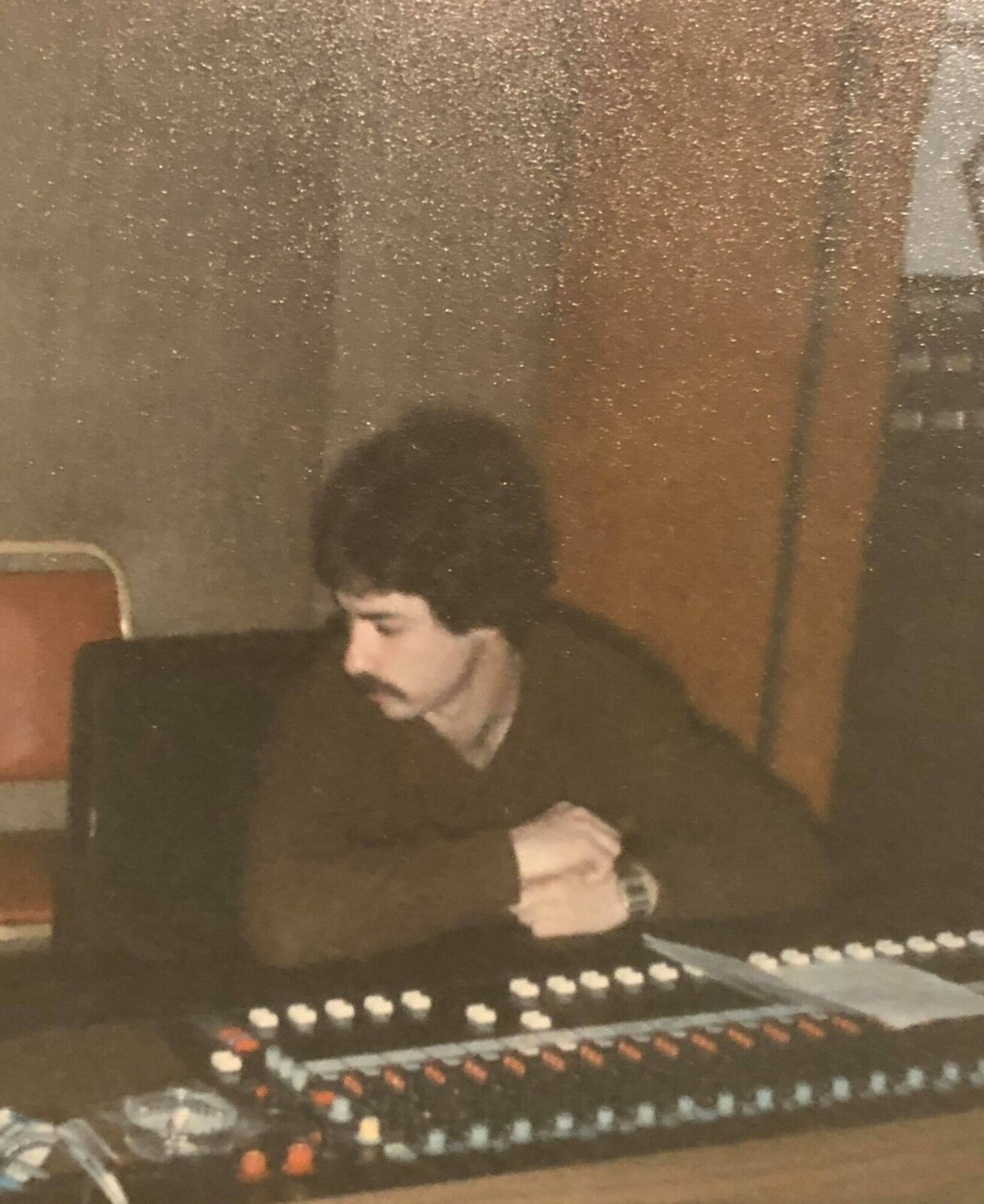
‘Can Ya Dig The Music?’ was my least favorite and was a fill song.
‘Who Is The Wise Man?’ and ‘The Lord Sings The Blues’ were about getting through my own battles with my personal hell at the time.
‘Babe’ and ‘I Remember Times’ were about ending my first serious relationship and how I felt about ending it when I really didn’t want to end it but knew it couldn’t go on.
‘You And The Bell’ was about a young lady who I dated that played in a bell choir.
‘My Long Distant Lover And Me’ was about someone I dated who lived on the other side of Pennsylvania.
I understand you also had two 45s after ‘Hit The Road’, one from 1979 and one from 1982? Tell me what happened after the album’s release.
Greg went on to play in a band in Las Vegas and I continued to record working with other musicians. After I released ‘Hit The Road’, I took it up to the local CBS record office in Cleveland. Here’s how that went. Every time I called no one was available to talk, or everyone was in a meeting. I started marching my ass up there and knocking on the door – after the sixth time of appearing unannounced, finally someone took the time to listen to my record. He did not like it but he admired my persistence.
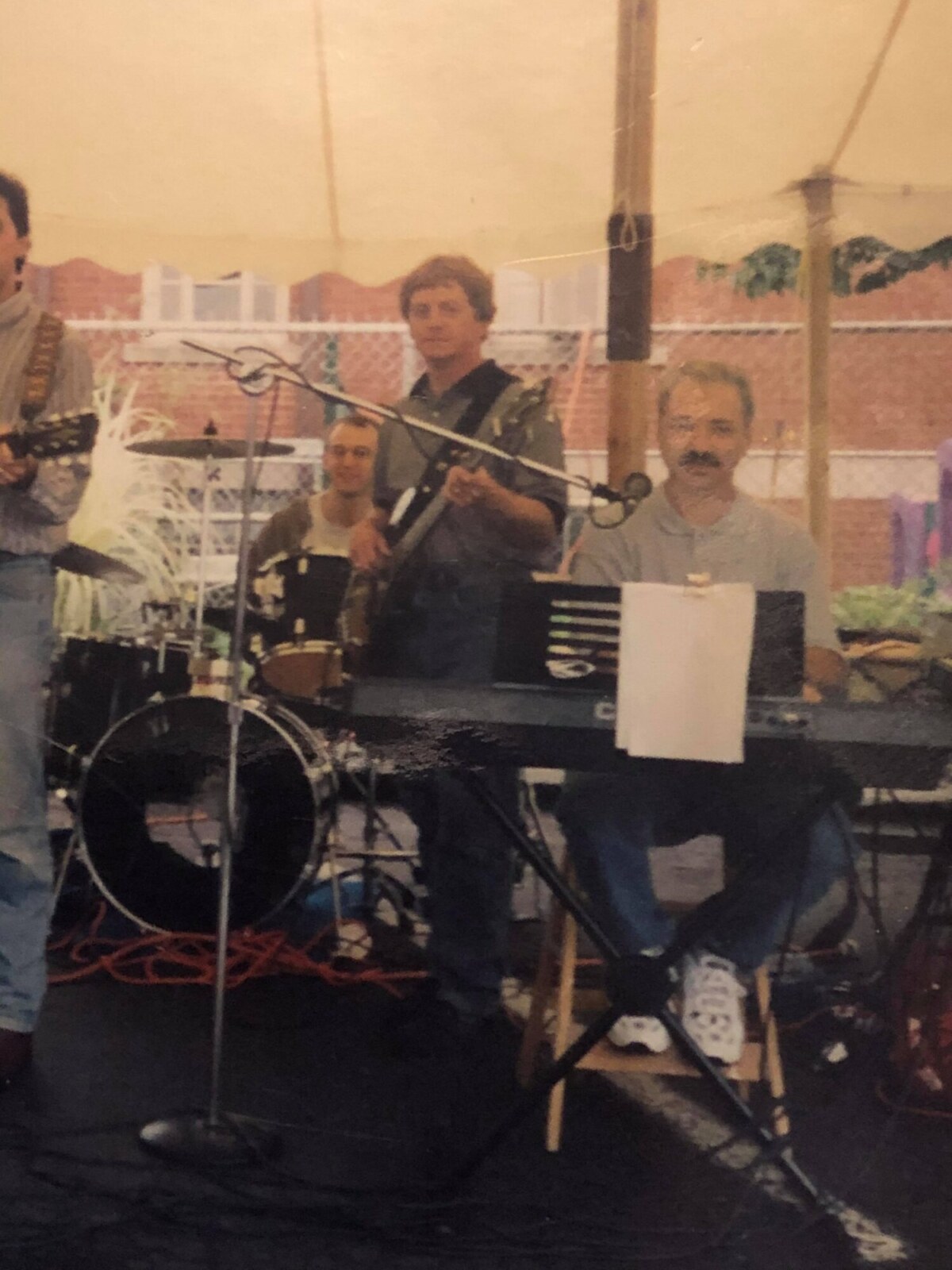
At that point, he told me that I need to go back into the studio and start putting demo tapes together with 4 songs and that as I accumulate them he would take the time to listen and guide me. I decided to record a 45 RPM with this song called ‘My Story Changes’ in 1979. The B-side really sucked because I spent all of the money recording the A side.
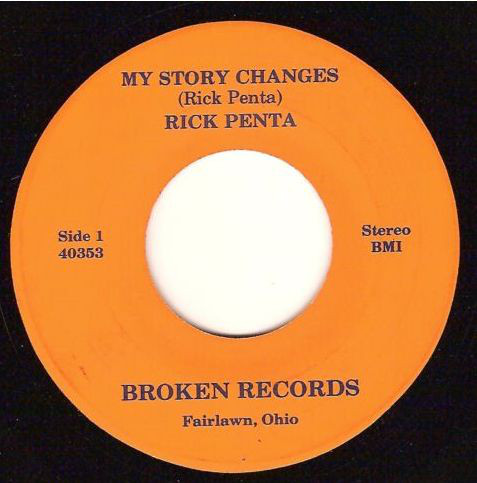
My philosophy was that it will only take one song; if I have a good one; maybe they will ignore the bad one. Then I started recording demos. This went on for about two years, then John Lennon was assassinated [in December 1980].
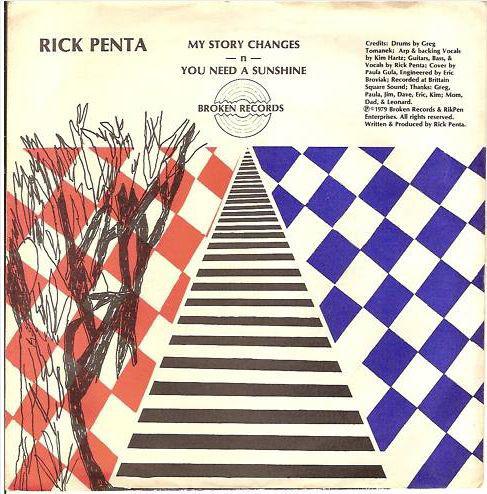
Like everyone else I was devastated. I wrote a tribute song for John Lennon and decided to make it into a 45 RPM in 1982. This song almost got a record deal for me and I was promised a contract from a CBS subsidiary. As it turned out, my contact at this company was fired because of his cocaine habit. By then I had met my future wife and was tired of riding the musical roller coaster.
“This life sure has been a journey.”
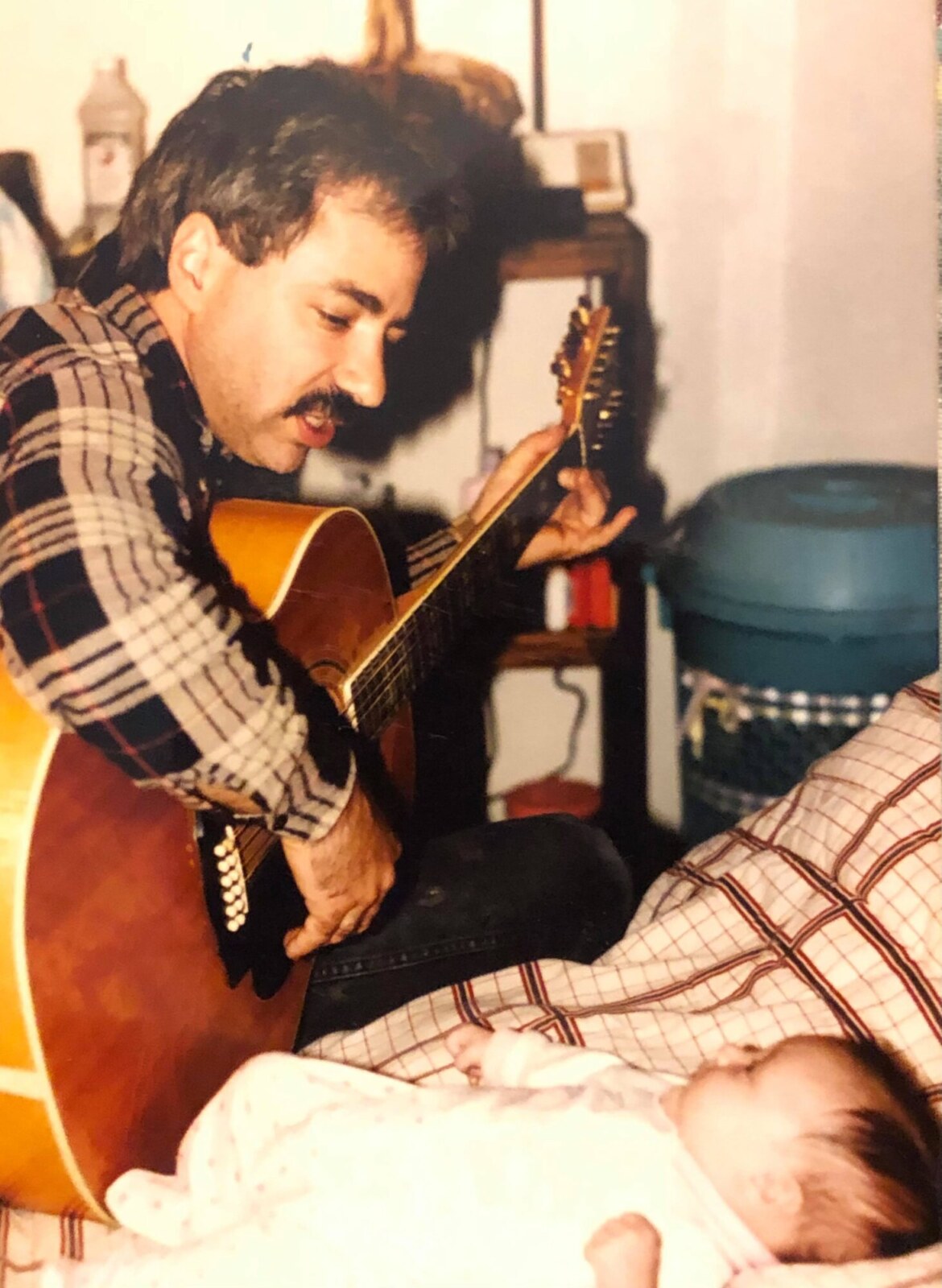
What happened after you released your second 45? I understand you’re a luthier now and make guitars.
After losing out from the potential record deal from the second 45, that was my cue to get out of the music business. I got married, apprenticed in a cabinet shop, and became a master cabinet and furniture designer/maker. I had always built at least one guitar per year from the time I was about 14 years old and thought about starting a business service throughout my life related to the guitar industry. I don’t think it could’ve happened until the Internet came about and people had confidence buying on the internet.
In the late 1990s I was doing a lot of work for the Catholic churches, building eclectic furniture and took part in several church restorations. Someone told the priest about the records that I recorded when I was younger. He was impressed and wanted me to run the church band. As it turned out, that did not work out for me, but it started me writing music again. I ended up buying a home studio recording equipment and rekindled my musical art. About five years later, I injured my back and ended up in the hospital for about four days. The doctor said I need to find another means to support my family, otherwise he would be cutting on me in about a year. That is when I started in the luthier business.
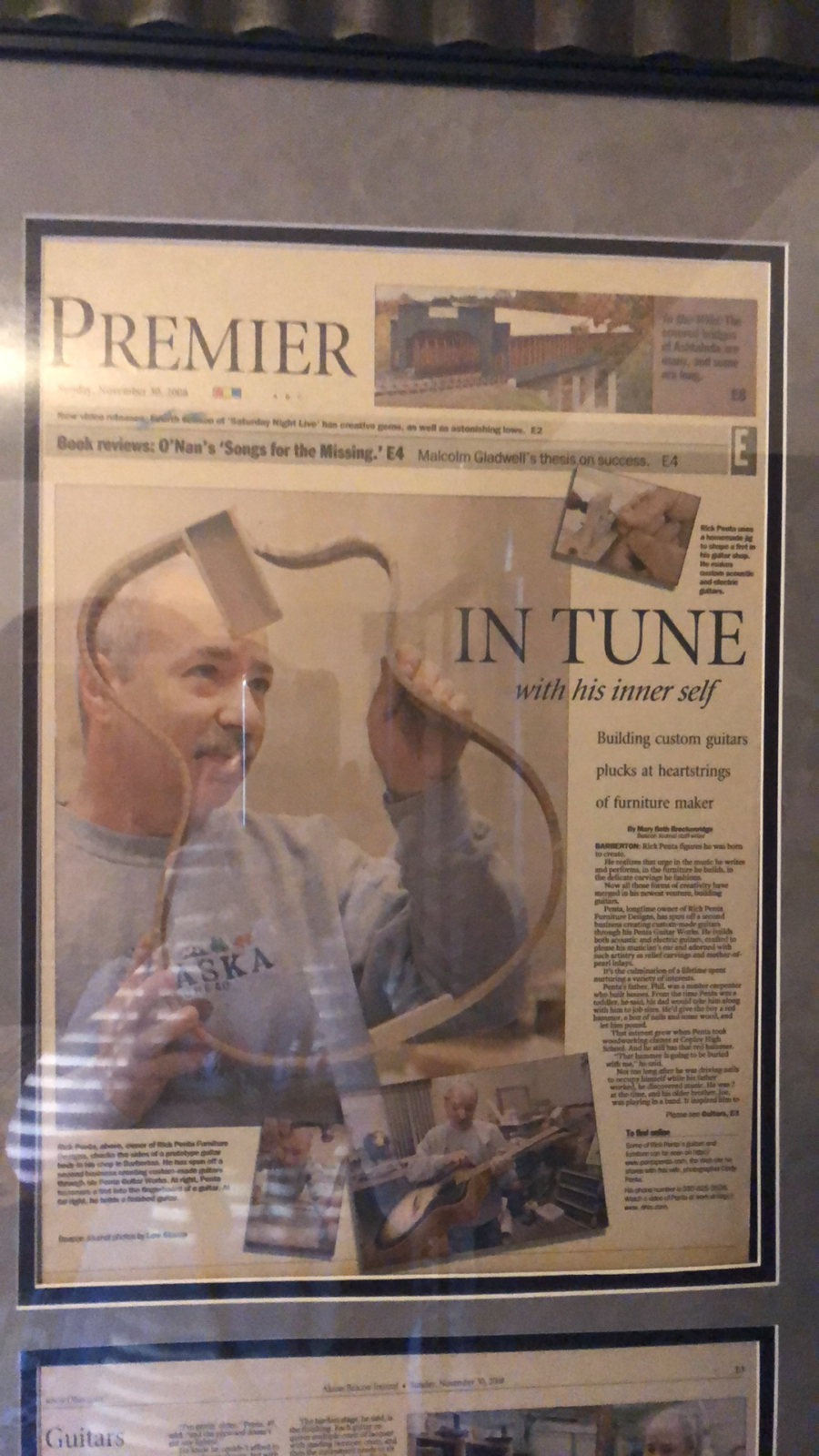
I was always pretty crafty at building gigs and different machines to achieve objectives in my furniture business, so I created a copy machine that ran automatically in car to guitar necks at the same time. The guitar neck is probably the hardest part of the guitar to build and there is no room for error. After I built my first two guitar neck blanks, my wife suggested that I put them on eBay to see if they were salable, someone bought them both the same day, so I need two more and someone else bought those. It took about six years grow the business enough to stop building furniture and cabinets, but eventually I got there and now all I do is build the guitar parts in my own small line of guitars mostly acoustic. This life sure has been a journey. It was never all good or all bad. Just interesting – no regrets! Rick Penta
Josh Robertson
Penta Guitarworks Official Website

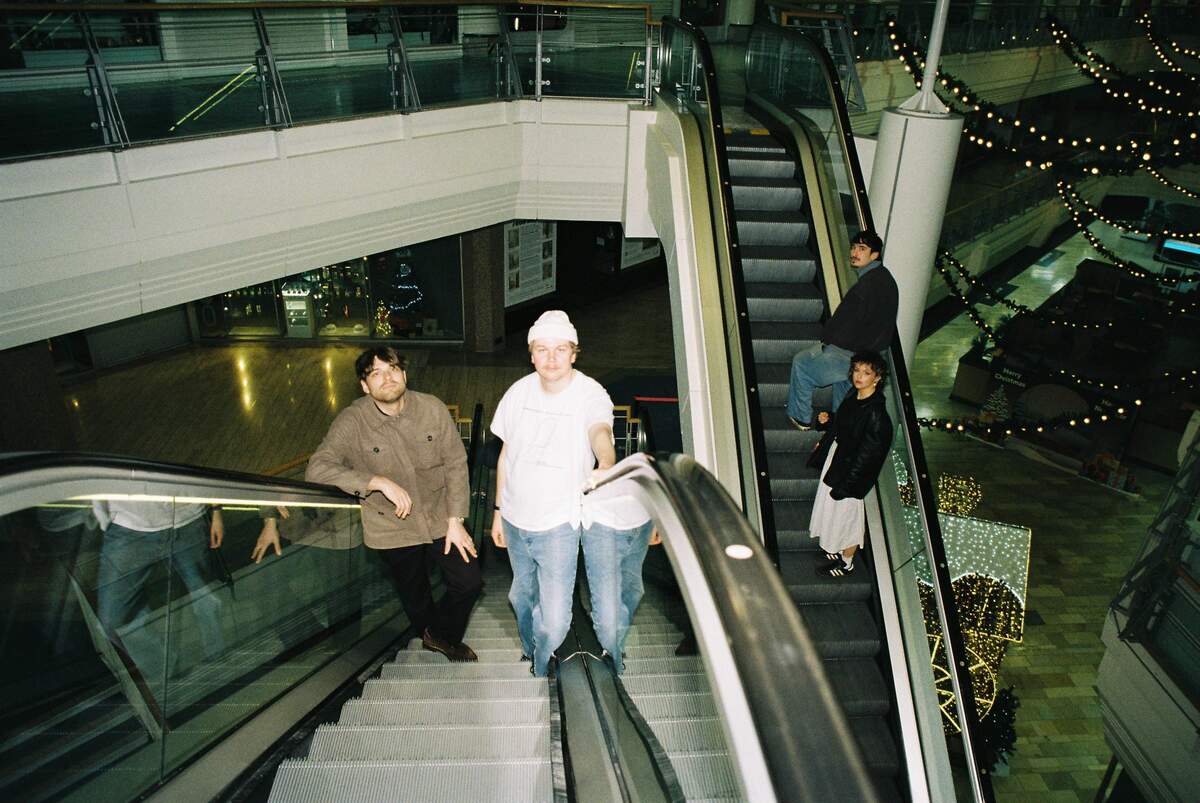


Wonderful article on my brother. He is such a great artist, musically and artistically.
Hi there, I am doing a cover of Babe and would love to get in touch with Rick, to ask his blessing and send it to him!